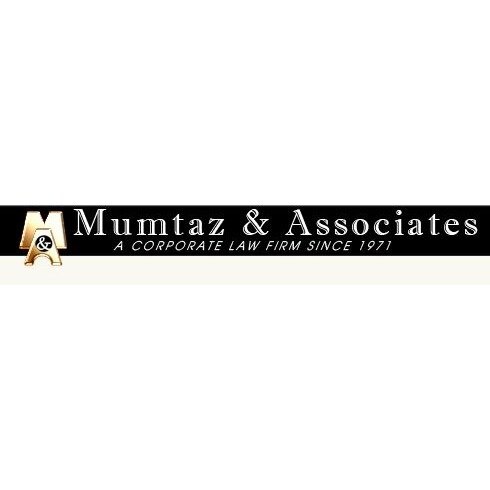Best Retirement Lawyers in Clifton
Share your needs with us, get contacted by law firms.
Free. Takes 2 min.
List of the best lawyers in Clifton, Pakistan
About Retirement Law in Clifton, Pakistan
Retirement law in Clifton, a prominent neighborhood in Karachi, Pakistan, encompasses the various legal aspects that govern retirement benefits, entitlements, and processes for individuals deciding to retire. The region adheres to Pakistan's national guidelines regarding retirement age, pension rights, and savings. The process ensures that individuals transitioning out of active employment have financial security and clear understanding of their post-retirement rights.
Why You May Need a Lawyer
There are several situations where you may need legal help concerning retirement in Clifton, Pakistan. Here are a few scenarios:
- Disputes regarding pension calculations and benefits.
- Seeking advice on early retirement and the implications on pension rights.
- Understanding how to claim retirement benefits from government and private sectors.
- Handling retirement as a foreign national retiring in Clifton, including tax implications.
- Legal advice on structuring retirement savings and investment to maximize returns.
Local Laws Overview
Retirement in Clifton follows the Federal Government's laws and regulations on pensions and benefits, which include:
- Retirement Age: Typically set at 60 years for most professions, unless specified otherwise under specific employment contracts or sector regulations.
- Pension Eligibility: Employees who have completed a specific number of service years, often a minimum of 15-20 years, become eligible for pensions.
- Provident Fund Scheme: Mandatory for certain sectors where both employees and employers contribute towards the employee's retirement fund.
- Gratuity Payment: A lump sum provided under specific employment terms, calculated based on the length of service and last drawn salary.
Frequently Asked Questions
What age is considered standard for retirement in Pakistan?
The commonly recognized retirement age in Pakistan is 60 years, though this might vary based on specific employment contracts or sectors.
How are pensions calculated in Clifton, Pakistan?
Pensions are typically calculated based on the length of service and the average of the last few years' salary, following government-regulated formulas.
Can I retire early and still receive my pension?
Early retirement is possible, but it may affect pension calculations. An individual may receive reduced benefits depending on how early they choose to retire.
Is pension inheritance allowed?
Pensions may sometimes be passed on to family members in the event of death, often limited to spouses or minor children, under prescribed conditions.
What is the difference between gratuity and pension?
Gratuity is a one-time payment given upon retirement or resignation after a qualifying period, while a pension is a recurring payment post-retirement.
Are there retirement schemes available for self-employed individuals?
Yes, private retirement savings and investment schemes are available for self-employed individuals, which can be tailored to personal financial goals.
How do foreign nationals retire in Pakistan?
They typically need to fulfill local regulations related to residence permits and tax liabilities to receive any retirement or pension benefits offered within the country.
What role does the government play in managing retirement funds?
The government provides regulation, oversight, and sometimes direct management through state-run pension and retirement benefit schemes.
Can I change my retirement savings strategy midway?
Yes, you can adjust your retirement savings approach, though it's advisable to consult financial advisers or lawyers for re-evaluation before making substantial changes.
Are there any tax implications on retirement benefits?
Retirement benefits may be subject to taxes under Pakistan's tax laws, depending on the total amount and individual’s overall income situation.
Additional Resources
Those seeking retirement advice in Clifton can consider the following resources:
- National Savings Pakistan for information on government-backed savings and pension plans.
- The Employees' Old-Age Benefits Institution (EOBI) for details on pension entitlements.
- Pakistan Centre for Philanthropy that may offer guidance on effective savings and investment strategies.
- Local attorneys specializing in retirement laws for personalized legal advice.
Next Steps
If you need legal assistance regarding retirement, consider taking the following steps:
- Consult with a specialized lawyer practicing retirement law in Clifton to understand your rights and obligations.
- Gather all relevant employment documents and pension plan details before seeking legal counsel.
- Use official channels like governmental websites or local pension offices to obtain accurate information.
- Consider joining a local support group or community for retirees to share experiences and tips related to navigating the legal landscape.
Lawzana helps you find the best lawyers and law firms in Clifton through a curated and pre-screened list of qualified legal professionals. Our platform offers rankings and detailed profiles of attorneys and law firms, allowing you to compare based on practice areas, including Retirement, experience, and client feedback.
Each profile includes a description of the firm's areas of practice, client reviews, team members and partners, year of establishment, spoken languages, office locations, contact information, social media presence, and any published articles or resources. Most firms on our platform speak English and are experienced in both local and international legal matters.
Get a quote from top-rated law firms in Clifton, Pakistan — quickly, securely, and without unnecessary hassle.
Disclaimer:
The information provided on this page is for general informational purposes only and does not constitute legal advice. While we strive to ensure the accuracy and relevance of the content, legal information may change over time, and interpretations of the law can vary. You should always consult with a qualified legal professional for advice specific to your situation.
We disclaim all liability for actions taken or not taken based on the content of this page. If you believe any information is incorrect or outdated, please contact us, and we will review and update it where appropriate.








